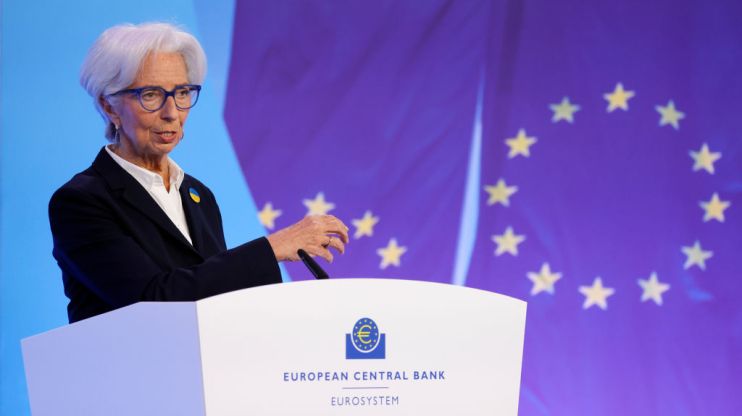ECB lifts interest rates to 22-year high as inflation concerns outweigh slowdown fears

The European Central Bank (ECB) hiked interest rates by 25 basis points, the tenth consecutive rise, as the central bank reckoned that the dangers of inflationary persistence were greater than an economic slowdown.
It means the eurozone’s key interest rate moved to 4.00 per cent, which is its highest level in 22 years. The main refinancing rate climbed to 4.50 per cent while the marginal lending facility now stands at 4.75 per cent.
In a statement, the central bank said “inflation continues to decline but is still expected to remain too high for too long.”
Inflation in the eurozone stands at 5.3 per cent, far above the central bank’s two per cent target but down from a peak of over 10 per cent last year. Despite the fall, economists are concerned about the possible persistence in inflation.
“Underlying price pressures remain high, even though most indicators have started to ease,” the statement said. The ECB expects inflation to average 5.6 per cent across this year before falling to 3.2 per cent across next.
The hike continues the most aggressive monetary tightening campaign in the ECB’s existence. Before the first rate rise in June last year, borrowing costs had been negative for several years as policymakers tried to stimulate demand and support the economy after the 2008 financial crisis.
However, a resurgence in prices compelled the ECB to lift policy into restrictive territory, raising rates from minus 0.5 per cent in June 2022 to 3.75 per cent last month.
Despite the rate hike, the euro fell with traders betting that the ECB will not hike rates again. The euro was down 0.6 per cent against the dollar.
Traders fixed on a line in the ECB statement which read: “the key ECB interest rates have reached levels that, maintained for a sufficiently long duration, will make a substantial contribution to the timely return of inflation to the target.”
However, speaking after the decision, Christine Lagarde, president of the ECB, said “we cannot say rates have reached their peak.”
Mark Wall, chief european economist at Deutsche Bank research said, the ECB was signalling a “lingering pause”.
“The ECB has retained the option to hike further if necessary. There is no declaration of victory on inflation,” Wall continued.
Today’s decision comes amid a backdrop of slowing growth in the bloc, suggesting that the ECB’s nine rate hikes are transmitting through to the wider economy.
The ECB said “past interest rate increases continue to be transmitted forcefully.”
“Financing conditions have tightened further and are increasingly dampening demand, which is an important factor in bringing inflation back to target,” it continued.
Data out from the end of August showed that Eurozone money supply shrunk for the first time since 2010, with private lending faltering and deposits declining. This indicates that the higher cost of borrowing is hitting demand for new loans.
Revisions to the EU’s GDP figures between April and June showed that the bloc grew at just 0.1 per cent, down from a previous estimate of 0.3 per cent.
The ECB downgraded its growth forecasts predicting the economy would grow 0.7 per cent across this year before picking up slightly to one per cent in 2024.
The Bank of England faces a similar predicament, with inflation proving stubborn and growth slowing. The Bank meets next Thursday, with markets expecting a 25 basis point hike.